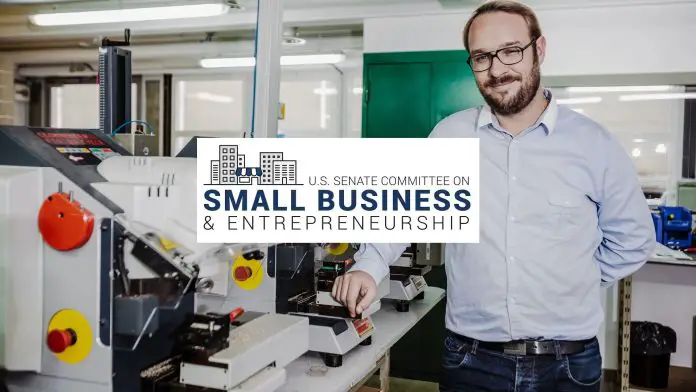In a significant move that could impact the future of small businesses, Ranking Member Edward J. Markey (D-Mass.) and Democratic Leader Chuck Schumer (D-N.Y.) spearheaded a formal request to the U.S. Small Business Administrator Kelly Loeffler, urging immediate action against the detrimental effects of former President Trump’s tariff policies. As the backbone of the U.S. economy, over 34 million small businesses are increasingly feeling the financial strain imposed by rising costs exacerbated by these tariffs.
The letter emphasizes a disconcerting reality: small businesses—from local restaurants to innovative tech startups—are struggling to afford the necessary supplies to operate. A survey conducted by Small Business for America’s Future revealed that about 71 percent of small businesses anticipate rising prices to remain profitable, but many fear that consumers, already burdened with economic uncertainty, will be unable to absorb these increases. This sets the stage for a troubling paradox: as costs rise due to tariffs, consumer confidence dips, creating a squeeze on small business revenues.
"From mom-and-pop restaurants unable to afford basic supplies like cooking oil to small manufacturers and high-tech startups struggling to afford the raw materials needed for innovation, small businesses across all sectors are facing the same crippling reality," the lawmakers stated in their letter. This stark depiction illustrates a widespread dilemma that many small business owners grapple with daily. The implications could extend beyond immediate financial difficulties; layoffs and business closures loom large as confidence in consumer spending wavers.
As small businesses navigate these turbulent waters, the urgency of proactive governmental support becomes clear. Markey and Schumer advocate for a multifaceted approach to remedy the growing crisis—one that emphasizes the importance of domestic manufacturing investments, supply chain integrity, and workforce training. They argue that without these strategic investments, small businesses may face long-term financial instability, further harming the 60 million U.S. workers they employ.
"Failure to act will not only jeopardize the livelihoods of small business owners but may also lead to long-term financial hardship for workers," they warned, emphasizing that many small business employees are living paycheck to paycheck, making them particularly vulnerable during economic downturns.
However, pivoting to alternative suppliers, often suggested as a solution, has been described as not only "ignorant" but potentially "dangerous" according to the lawmakers. This sentiment resonates with many small business owners who may not have the flexibility or resources to adjust their supply chains rapidly or effectively. The complexity of finding new, reliable suppliers amid a trade war adds further strain on these businesses, forcing them to contend with not just tariffs but a chaotic and shifting economic landscape.
In urging Administrator Loeffler to take immediate action, Markey and Schumer expressed the significant responsibility that sits on her shoulders to represent the interests of America’s small businesses. “You have an obligation to fight for their survival. Your leadership is crucial in ensuring that the concerns and struggles of small business owners are heard,” they declared, highlighting the critical need for supportive measures in overcoming current economic challenges.
The potential pathways forward hinge on decisive action from federal agencies. For small business owners, staying informed about developments and advocating for their interests can be crucial in weathering the impacts of these policies. Ensuring visibility—both to policymakers and within their communities—will help small businesses secure the supports they need to remain viable in a tumultuous market.
As small businesses look to navigate the complexities of tariffs and supply chain challenges, the push from lawmakers could signal a turning point. The ongoing dialogue suggests that the interests of small businesses must remain a priority as economic conditions evolve. The pressing question for business owners now is how to adapt effectively while advocating for essential changes that could stabilize their operations in the wake of shifting trade policies.
For further details on this development, access the original press release here.
Image Via Envato: Lemnaouer



